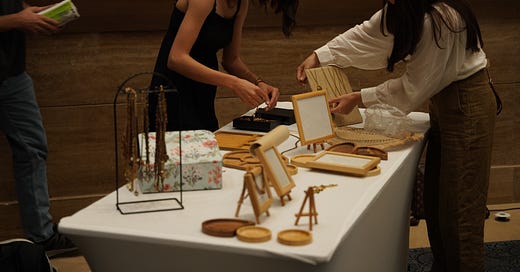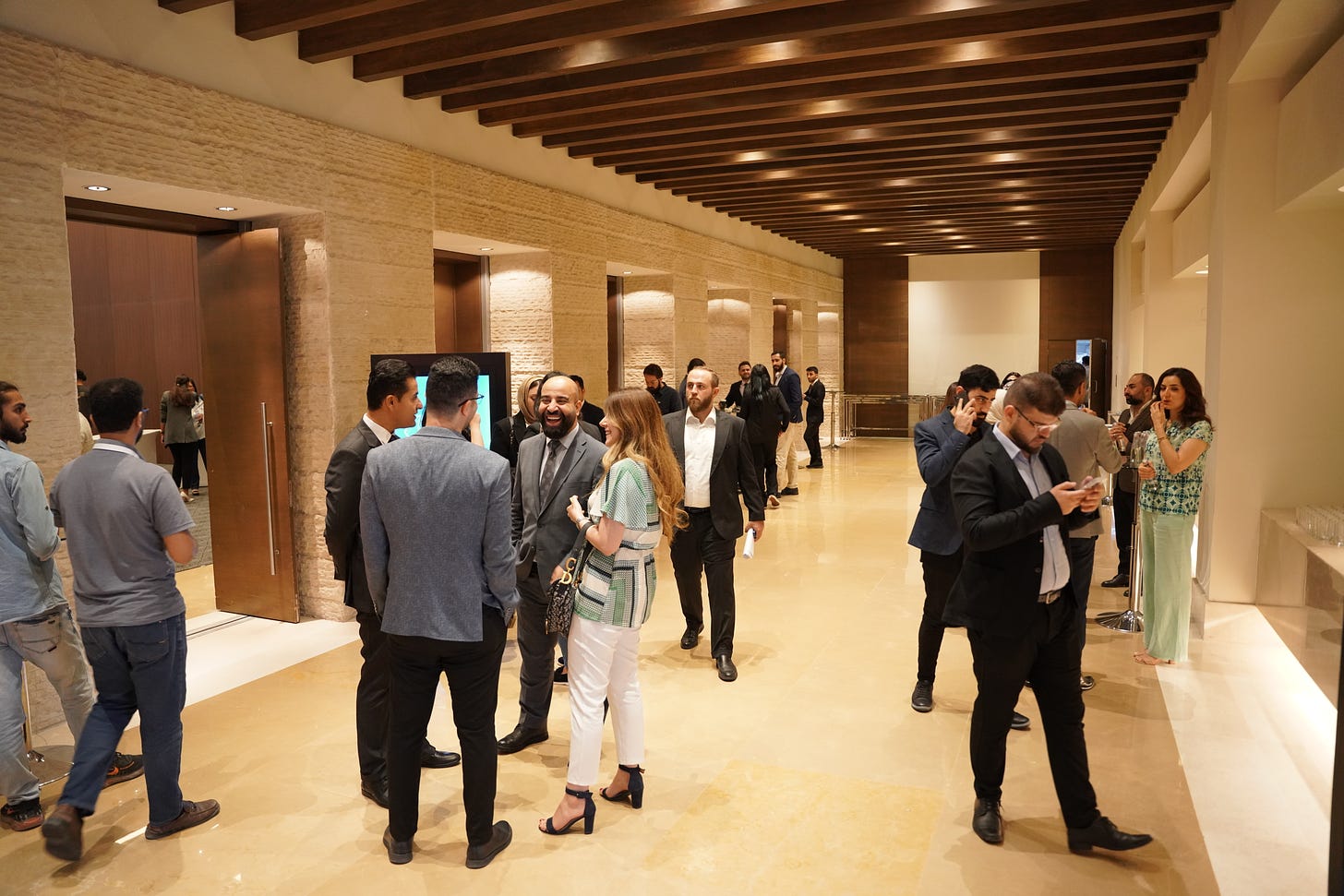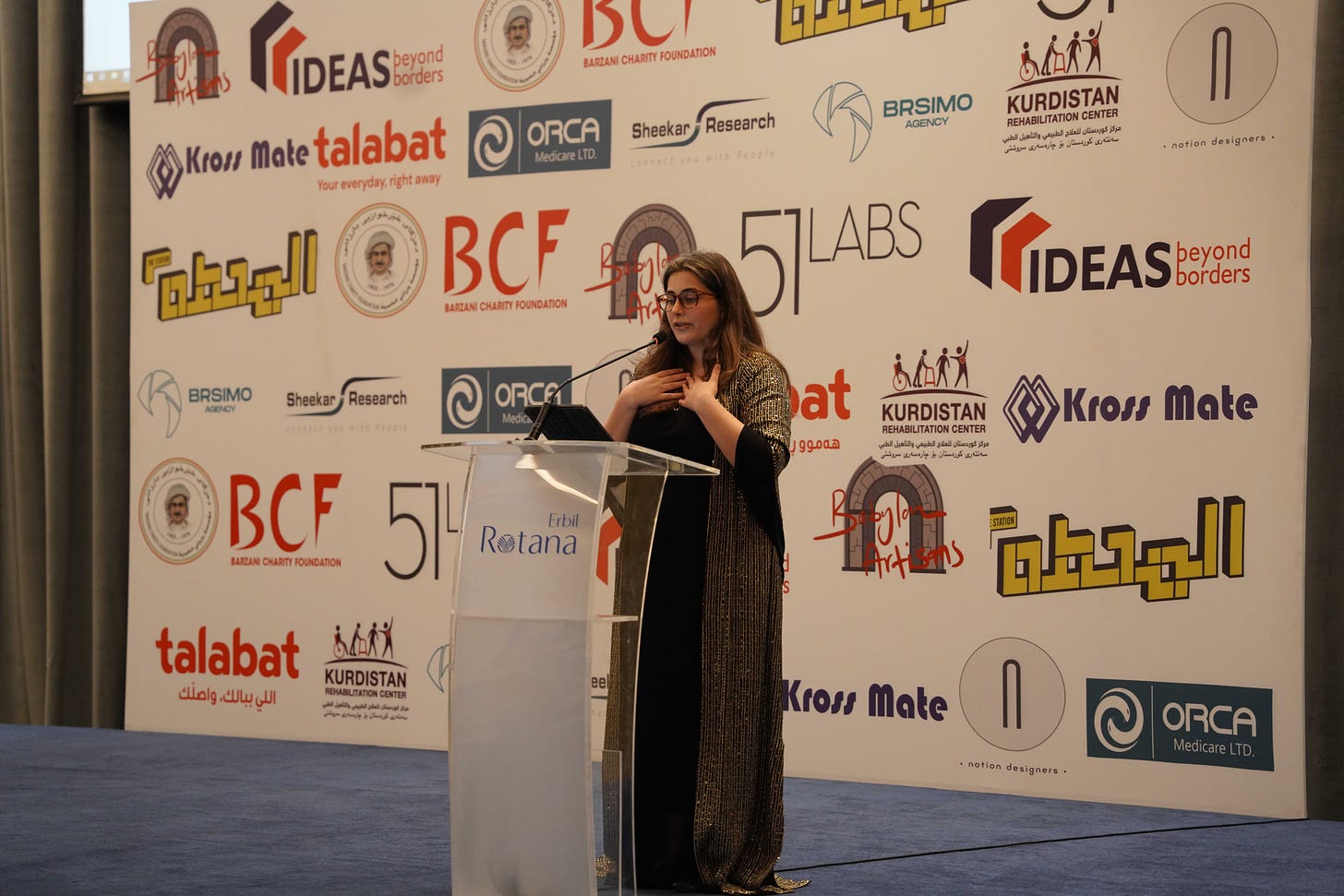Start Up Successes
Babylon Artisan Market aims to shake up the small business scene in Kurdistan
In December 2022 Diyan Gawdan was between jobs, searching for a suitable role in the humanitarian sector. Her new career came about by chance after conversations with artisans introduced her to the entrepreneurial sector in Kurdistan. “I saw how these small businesses were developing and thriving. It made me feel really good,” she says. Visiting pop-up markets and browsing stalls at café bazaars, she chatted with local makers about the possibilities and pitfalls of starting a business in the Kurdish capital Erbil. “It’s not easy starting something from zero, it takes a lot of courage,” says Gawdan, who decided she could do something to help.
In 2021, Iraq received less than 1% of the $2.6 million in venture capital funding that was allocated to start-ups in the MENA region, but with a young, mobile-savvy population and an increasingly vibrant start-up scene, investors are eyeing cities like Erbil with more interest. Iraqi start-ups raised $16 million in 2022 compared to $7 million in 2021, according to Magnitt, a Dubai-based data platform on MENA start-ups, with much of the focus on enterprises coming out of Erbil.
Across the city, incubators and co-working spaces are producing new cohorts of entrepreneurs, breathing energy into Iraq’s private sector and cultivating new ideas. “Entrepreneurship is a vital step towards bolstering Iraq’s private sector and creating job opportunities outside of the over-saturated public sector,” says Faisal Al Mutar, President of Ideas Beyond Borders, which launching a new project to transform the business start-up environment in Iraq’s Kurdistan region.
Open for Business in Kurdistan aims to improve the infrastructure for entrepreneurs as they register new businesses while campaigning for pro-business legal reform in the region’s parliament. “Young people in this country are eager for change. By supporting their ideas and creating an invigorating environment for entrepreneurship, we can empower them to achieve it,” Al Mutar says.
One of the challenges entrepreneurs face is gaining visibility in Kurdistan, where the start-up scene is confined mainly to co-working spaces, cafes and the occasional private event. This is where Gawdan realized she could help. Many artisans rely on coffee shop bazaars that invite local entrepreneurs to exhibit for an afternoon, but Gawdan felt there was scope to do more. “I have sat there and tried to make sales for friends and personally found the experience humiliating… I decided to make the vision bigger,” she says.
A plan began to take shape, to host an event that would not only provide a space to make sales but also to network, share ideas and learn from experts in the field.
To raise the funds, Gawdan applied for a grant with the Ideas Beyond Borders Innovation Hub and secured enough to launch her idea. Over a period of three weeks, she met with entrepreneurs, partners and sponsors to create a platform that would drive local business and give Kurdistan’s entrepreneurs the support they needed. “I didn’t expect any help but I discovered how many people were willing to put their own priorities aside to make this event happen,” she says.
Then, the day before the event, one of the sponsors called to say their logo had the wrong branding on stage, where they were due to participate in a panel on embracing independence for small business owners. “They threatened to pull out,” Gawdan recalls. With just hours to go, she begged the printer to open their shop late at night so they could re-print the banners. Finding the venue was another challenge. Public spaces like parks require lengthy government approval, while private venues are expensive. In the end, she booked a hotel but next time she hopes to use the Erbil citadel, where a newly refurbished space is ideal for open-air events.
This ancient site, which has been home to Muslims, Christians, Jews, Arabs and Kurds over the centuries, perfectly captures the essence of the enterprise that she has named Babylon Artisan Market (BAM!). “Too many events reinforce this segregation between Arab and Kurdish youth. I focus on inviting participants from all over Iraq – not just Erbil,” she says. “Kurdish and Arab youth have too few opportunities to understand each other, but we are all Babylonians,” she adds.
Her hard work paid off watching the BAM! Panel discussion as a young man from Baghdad spoke with a Kurdish woman from Duhok about the challenges of starting a business while convincing friends and family members to support the idea. “He was saying that his family treats his business like a hobby and she said hers do the same. They found a lot of similarities,” Gawdan says.
Watching these two young people find common ground in their goals, Gawdan felt a rush of satisfaction. “I sat there thinking mission accomplished,” she says. Now she plans to develop BAM! into a network and host more events, building on the successes of the first and adding new ideas to ensure that entrepreneurs from across Iraq and Kurdistan have a platform to share and support one another while learning valuable skills to drive their businesses forward.
This article was written by Olivia Cuthbert.






